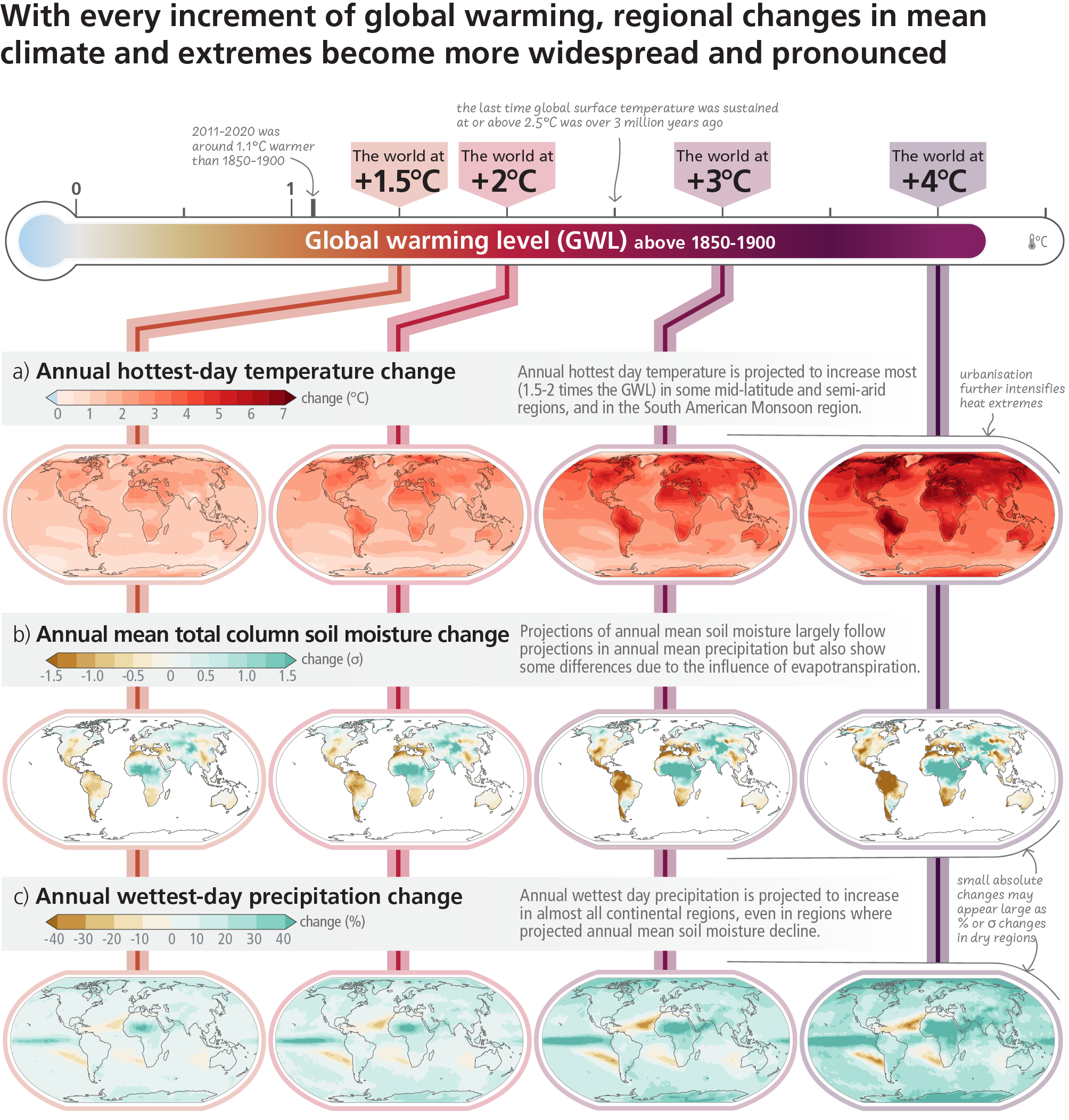IPCC Sixth Assessment Report
On the 20th March 2023 the Intergovernmental Panel on Climate Change ‘IPCC’ released its Sixth Assessment Synthesis Report.
This is a key scientific baseline, consensus and internationally respected building block which needs to form the basis for all climate actions that governments take towards mitigation and adaptation on climate change.
It gives a picture of the choices that the world faces, some of the key points are:
Human activities have unequivocally caused global warming of up to 1.1°C above global temperatures from 1850-1900.
Major changes have already taken place in the atmosphere, ocean, cryosphere and biosphere.
Weather extremes now affect every region of the world.
The climate affects people will experience in the future depend on how we address climate change today.
The Nationally Determined Contributions ‘NDCs’ announced by November 2021 would in the estimation of the world’s leading body of climate scientists result in likely warming exceeding 1.5°C during the 21st Century, and making it harder to keep warming below 2°C.
To avoid exceeding 1.5°C, or to limit that ‘overshoot’ to the shortest possible period, will require “rapid, deep, sustained reductions in emissions across all sectors”.
Yet the IPCC is equally clear in insisting that every possible limit on emissions is worth fighting for. “There are multiple, feasible and effective options to reduce greenhouse gas emissions and adapt to human-caused climate change, and they are available now.”
But every increment of warming results in rapidly escalating hazards. More intense heatwaves, heavier rainfall and other weather extremes further increases risks for human health and ecosystems. In every region, people are dying from extreme heat. Climate-driven food and water insecurity is expected to increase with increased warming.
AR6 Synthesis Report: Climate Change 2023
The IPCC Sixth Assessment Synthesis Report brings together the work of IPCC Working Groups, each focussed on a different aspect of climate change:
Working Group I (the Physical Science Basis, 9 August 2021)
Working Group II (Impacts, Adaptation and Vulnerability, 28 February 2022)
Working Group III (Mitigation of Climate Change, 4 April 2022)
Headline Statements
Link here
If you read nothing else on the IPCC Sixth Assessment Synthesis Report, we recommend that you consider reading these Headline Statements to see the actuall summary of what the collective IPCC scientists have concluded.
Figures
Link here
Summary for Policymakers
Link here
Simon Stiell, UN Climate Change Executive Secretary, said -
“We’re running out of time but not out of options to address climate change.
Today’s IPCC Synthesis Report of the Sixth Assessment Report adds more clarity and detail to a simple truth: we have to do more on climate change now.
We are in a critical decade for climate action. Global emissions need to be reduced by nearly 43% by 2030 for the world to achieve the Paris Agreement’s goal to limit global temperature rise to 2 degrees Celsius and pursuing efforts to limit the temperature increase to 1.5 degrees Celsius. The Synthesis Report highlights just how far off-track we are.
It’s not too late. The IPCC clearly demonstrates that it is possible to limit global warming to 1.5 degrees Celsius with rapid and deep emissions reductions across all sectors of the global economy. It has given us many feasible, effective and low-cost mitigation and adaptation options to scale up across sectors and countries.
If we are to halve emissions by the end of the decade, we need to get specific now. This year’s so-called Global Stocktake – a process under which countries assess progress towards the Paris goals – is a moment for countries to agree on the concrete milestones that will take us to our 2030 targets.
This roadmap must include detailed steps for all sectors and themes, including climate adaptation, loss and damage, finance, technology and capacity building.
By giving us not only a plan based on available options, but also finance reform and a renewed sense of political and corporate accountability on climate change, COP28 can be the moment where we start to course correct to collectively meet the Paris goals.”
At COP26 and beyond, for our coverage of climate change issues for 2023 and in future articles, we will be looking at:
What the science tells us, as summarised in this IPCC Sixth Assessment Synthesis Report; and reporting on current progress towards irreversible ‘Tipping Points’.
What nations are currently doing about it, as outlined in the Global Stocktake due to take place in 2023; including progress on both Climate Mitigation and Adaptation, and progress in protecting Biodiversity.
What national governments are prepared to commit to doing about it in the future, as set out at COP28.
“The Global Stocktake”, which will include Information Collection and Preparation (up to June 2023): Technical Assessment (up to June 2023) and Consideration of Outputs (November 2023), leading into…
UNFCCC COP28, which will take place between 30 November 2023 and 12 December 2023 in Dubai, United Arab Emirates.



